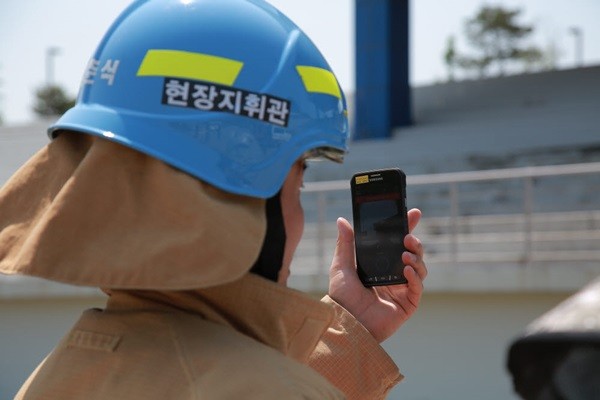South Korean Government is going to come up with solutions that will eliminate interference between PS-LTE (Public Safety LTE), LTE-R (LTE-Railroad), and LTE-M (Maritime).
It is going to maximize the safety of each network by sharing the blueprints of these networks and applying latest technologies such as LAN sharing. Ultimately, these measures will contribute to protecting the people in South Korea.
It is confirmed that Ministry of the Interior and Safety (MOIS), Ministry of Oceans and Fisheries (MOF), and Ministry of Land, Infrastructure and Transport (MOLIT) formed a “joint public networks committee (the committee)” and agreed on applying safety technology and sharing the blueprints of networks. (Reference: The first page of The Electronic Times issued on 1/28/20)
Although PS-LTE, LTE-R, and LTE-M has its own purpose, they all use same 700MHz band (20MHz width) which has brought up a possibility of interference continuously.
When LTE-R is constructed along railroads near an area where PS-LTE, which is used by the police and firefighters, is constructed, interference can occur causing both networks to be unavailable.
As a result, MOIS suggested forming a committee between departments and induced an agreement.
The committee agreed on specifics such as evasion of LTE-R, application of LAN sharing, and formation of a working discussion system under the same consensus that people’s lives are a top priority.
MOLIT will first construct LTE-R along railroads while MOIS and MOF will construct PS-LTE and LTE-M separated from LTE-R. To do this, they are going to share blueprints of these networks and look to avoid interference by physically separating base stations or adjusting the angles of antennas.
They have come up with different measures to avoid interference after sharing their concerns that interference can cause serious accidents and harm people’s lives. MOLIT brought up its concern that interference can lead to a mass mortality event due to derailment of trains and its concern was empathized by MOIS and MOF.
The committee has agreed to apply LAN sharing technology regarding any additional interference not resolved by physical separation of networks and radio shadow areas.

LAN sharing is a technology that optimizes wireless radio waves so that single wireless base station can be shared by PS-LTE and LTE-R.
A design that constructs PS-LTE and LTE-M separated from LTE-R can cause radio shadow areas within PS-LTE and LTE-M and overlapping of radio waves with LTE-R based on how networks are designed
When LAN sharing is applied, terminal units of PS-LTE will access channels provided by base stations of LTE-
R instead of base stations of PS-LTE and relay data to PS-LTE.
The committee agreed to form a working technical committee that will take care of such countermeasures towards interference.
It is expected that this working committee will draw detailed ways of applying LAN sharing technology and physical separation of networks and mediate any cost issue that can occur between the three departments.
The departments seem to succeed in preparing effective alternatives by forming a committee that will focus on discussions between the departments and has the right to decision-making. Although agreement on measures towards interference between three networks was delayed due to differences in opinions between the departments, it is important that actual measures were mediated based on their mutual understandings.
Considering the fact that networks are currently being constructed, the committee is planning to resolve the interference issue through simulations based on sharing of blueprints between the departments rather than preparing perfect preliminary blueprints and constructing networks.
“It is a good thing that the departments agreed on technologies and principles to solve the interference issue.” said an expert in public safety. “They have to make sure that their plans are implemented properly by constantly looking after blueprints and construction process of networks.”
Staff Reporter Park, Jisung | jisung@etnews.com & Staff Reporter Choi, Ho | snoop@etnews.com